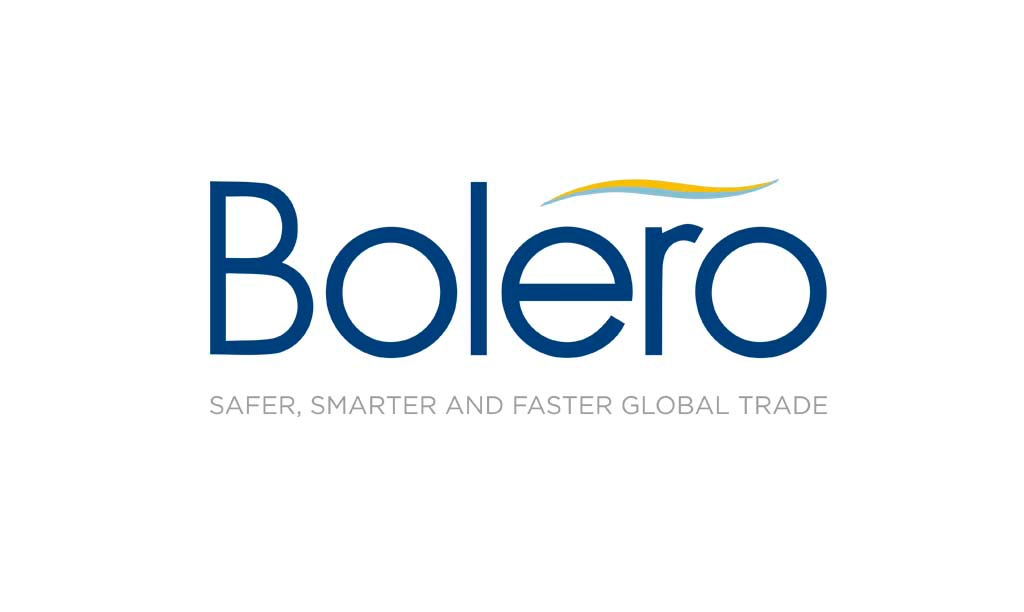Published
- 04:00 am

ING today announced that Stemly, a software as a service platform, is the first initiative to be spun out of ING Labs Singapore. To enable accelerated growth and to pave the way for an independent future for Stemly, venture capital fund Elev8, ING Ventures and EDB New Ventures, the corporate venture building arm of EDB, along with other investors, will invest US$2.5 million into the venture.
One of the first initiatives to be incubated in ING Labs Singapore in 2018, Stemly was created to address the gap in decision intelligence that exists in supply chain operations and finance. For instance, in demand planning for manufacturing and retail, it may take three weeks or more to respond to market changes in consumer behavior which results in overstocking and loss of sales.
With an industry average forecasting error of more than 27%1, companies face massive impact on working capital needs. In fact, McKinsey found that at least one company in 20 has suffered a supply-chain disruption costing at least US$100 million due to global disruptions every year in the past several years.2
Powered by autonomous machine learning technology, Stemly can greatly enhance the decision-making capabilities of enterprises by demystifying data science and delivering impactful business outcomes. Its platform automates forecasting and optimisation of a company’s supply chain and finance processes.
Stemly started within ING Labs Singapore with Giuseppe Manai and Sanjay Saini as founding venture builders, both based in Singapore. Stemly currently comprises a team of 20 spread across Singapore, India, Indonesia, Ireland and Australia. Giuseppe has more than 20 years of experience in the data science field while Sanjay has accumulated more than 25 years of global corporate experience in managing, consulting for and developing software for supply chains.
Co-founder Sanjay Saini said: “Businesses are challenged by the uncertainty in supply chains, where demand and supply fluctuations have been amplified by the pandemic of late. Stemly empowers managers to make better and faster decisions in demand forecasting, inventory optimisation and cash flow management, ultimately reducing their operating cost and improving their operational efficiency.”
"We are helping businesses save 10% to 40% of their cost of inventory and working capital - the equivalent of tens of millions of dollars in some cases - by embedding automatic machine learning in their forecasting and optimisation applications. We have already signed on several leading MNCs as clients; with this investment boost, we are confident of growing faster," added co-founder Giuseppe Manai.
Olivier Guillaumond, global head of Innovation Labs and Fintechs at ING said: “Stemly’s growth from ING Labs Singapore has been another success story of innovation at ING. Insight into demand forecasting, supply chain optimisation, and cash flow forecasting is helping to build resilience in the businesses of our customers. Our aim is to always help our customers be a step ahead, and our efforts in Stemly are testament to that.”
Following the spin-out, Singapore-based Stemly will be an independent entity and continue to work closely with ING benefiting from its global network and financial services expertise.
“EDB New Ventures supports corporates in building new businesses from Singapore, by providing access to industry networks, expertise and risk-sharing capital. The Stemly team, incubated by ING, brings AI experience, domain expertise in supply chain and finance, and the ability to scale quickly via networks of ING. We are excited about this latest addition to the corporate venturing ecosystem, with Stemly well-positioned to ride on the growing adoption of data science to support supply chain agility and resiliency for its customers”, said Choo Heng Tong, Executive Vice President, New Ventures and Innovation, EDB.
Elev8’s founder and managing director Aditya Mathur said: “Global supply chains are undergoing a fundamental shift in capacity and in complexity. Stemly’s autonomous machine learning platform for demand and cash flow forecasting has the potential to meaningfully improve operating efficiencies in enterprises of all sizes. We are excited to support Sanjay and Giuseppe’s vision of an AI-assisted supply chain."
Frederic Hofmann, managing director of ING Ventures said: “Our investment in Stemly is a natural extension of our innovation strategy where we identify solutions that disrupt existing ways of working and add value to our clients. We see Stemly as a great value-add to customers as it enables them to make well informed business decisions and formulate data-driven strategies along the supply chain. We are glad to see the market appetite in the funding round which is a testimony of the company traction and the size of the problem it is solving.”
1 This is according to Gartner in its research paper: How Demand Management Disruption Will Power the Future Supply Chain
2 McKinsey published these findings in a note: “Is your supply chain risk blind or risk resilient”.
Related News
- 03:00 am

Research conducted by Celent on behalf of Icon Solutions and MongoDB has revealed the bank data services that corporates will pay for, and the ones they consider table stakes. Findings show the services that corporate clients would be most willing to pay for are real-time cash balances (84%), enhanced security and fraud prevention (74%) and a single real-time balance dashboard across multiple bank partners (70%). The report also highlights the risk of customer churn as corporates do not expect to pay for services such as virtual accounts and ISO 20022 compliance support and would switch providers to access them.
‘Expectation versus Reality for Payments Data Monetisation’ surveys 217 corporate treasurers and CFOs and 168 senior bank executives globally, providing unique insight into the business challenges facing corporates and their expectations for data-driven services, along with banks’ plans to address emerging customer requirements through payments data monetisation initiatives.
Payments data monetisation is an increasingly key strategic priority for banks, with 38% reporting it as an objective of technology transformation investments. This is being driven by growing margin pressure and competition, evolving customer expectations, and migration to real-time payment infrastructures and ISO 20022.
“Corporate clients are increasingly looking to their bank partners to help them run more efficiently, and this creates a number of opportunities for new revenue-generating services,” explains Kieran Hines, Senior Analyst at Celent. “Greater access to real-time data, including real-time forecasts, are high on the wish lists of clients, alongside enhanced security and analytics-driven tools to support decision making. However this is not the whole story, and there are several services that corporates want to access but are unwilling to pay for – in other words becoming ‘table stakes’. With many corporate clients looking to rationalise their bank relationships, banks should consider investing in new data-led services to both support client retention as much as to drive the top line.”
Toine van Beusekom, Strategy Director, Payments at Icon, comments: “The implications of this report for banks are clear. Inaction is not an option and investment is urgently needed just to retain existing business and relevancy, let alone generate new revenues. But payments data monetisation is not a one-off product initiative, it is a strategy that must span the entire organisation. This means that technology spend and transformation strategies must be directed towards doing the fundamentals extremely well and lowering the cost of delivering standardised, accurate and complete payments data in real-time. By doing this, banks can build the foundations that deliver the flexibility and agility to respond to the evolving needs of corporate clients.”
Ultimately, the report highlights that payments data monetisation is about more than revenue. The real opportunity is to move the relationship with corporate clients away from banking being about consumption of products, towards acting as true partners for customers. This shift in perception holds the key to long term revenue and margin growth.
To learn more, download the full report here.
Related News
- 09:00 am

Revelock , a pioneer in behavioural biometric based online fraud prevention, has today announced it is partnering with Sionic, the global financial services consultancy, to help banks and financial services providers around the world take a more proactive approach to detecting and responding to fraud. Sionic will offer Revelock’s ‘Fraud Detection and Response (FDR) Platform’ as part of its extensive portfolio of leading anti-fraud solutions that together protect clients and their customers from constantly evolving and expanding fraud attacks.
Founded in 1994 and comprising more than 300 industry practitioners located across the globe, Sionic specialises in providing independent advice and professional services to banks and other financial services providers. Its Financial Crime & Compliance team focuses on identifying and supporting the implementation of best-in-class solutions to help its clients protect their infrastructures from attack.
Whereas online fraud prevention has traditionally focused on identifying typical bad actors, Revelock’s solution works by leveraging advanced behavioural biometrics and hybrid-AI to create a BionicID for each user. This works like a digital fingerprint, enabling financial institutions to know every user at a granular level and detect anomalies created by any threat vector that may be used to take over accounts. The platform also provides an ‘Active Defense’ through configurable automated responses to fraud. Together, these capabilities enhance organisations’ ability to accurately spot bad actors and proactively protect legitimate users against identity impersonation and manipulation threats, all without adding friction to the customer journey.
“We are constantly reviewing the latest innovations in the fraud prevention space to ensure our clients are in the best possible position to tackle the rising tide of fraud,” said Gareth Evans, Sionic Director and head of the firm's specialist anti-fraud team. “Revelock’s ability to detect and then pre-emptively block and respond to fraud attempts makes it a crucial addition to our fraud prevention portfolio. We’re excited about how this partnership will deliver key benefits to our clients, such as cutting losses incurred by fraud and reducing the workloads of their fraud teams.”
“We’re delighted to partner with Sionic to make our technology more easily accessible to its world-renowned clients,” said Pablo de la Riva Ferrezuelo, CEO at Revelock. “Their expertise – so often gained through time on the frontlines facing the very attacks we are working to block – will be invaluable to us in our efforts to help financial services advance in the fight against online fraud.”
Related News
- 04:00 am

Bolero International, the leading cloud-based trade finance digitisation experts announce the appointment of Vincent Acors as their new Trade Finance director for the Asia-Pacific region.
Based out of Bolero’s Singapore office, Vincent will be responsible for business operations and Bolero’s growth strategy to build on the company’s growing presence in the region.
Vincent joins Bolero from MonetaGo, financial technology solutions provider where he was the Head of Business Development for APAC.
Prior to Bolero, Vincent amassed 27 years of experience in emerging technologies globally, with extensive knowledge of telecoms-based SaaS platforms and significant relationships with Banks, NBFI’s, governments and corporates in the region. His wealth of experience will enable him to fit seamlessly into the team.
Vince said “It’s a great time to join Bolero. The technology is innovative and relevant on a global scale. The last 17 months have proven that digitisation is essential. I’m looking forward to maximising the opportunity whilst maintaining Bolero’s position as No.1 and best practice for banks and corporates in Asia.”
Andrew Raymond, CEO of Bolero said: “It’s great to have Vincent join the Bolero family. His appointment comes at an exciting time for the company as we continue to grow in the region. And with the recent shift towards trade finance digitisation in the region, this creates tremendous opportunity for us.”
Raymond added “ We continue to be a magnet for highly talented individuals and Vincent will ensure we realise the strong potential we see in the region and bring more value to our customers.”
Following the release of Bolero’s innovated trade portal-as-a-service solution Galileo TPaaS for Banks solution earlier this year, the product has generated enormous waves of enquiries across the region from large international banks to multi-lateral organisations and new virtual banks.
Related News
- 01:00 am

Telkom has launched Africa’s first Mastercard virtual card for use on WhatsApp, enabling Telkom Pay customers to make e-commerce payments. This move is expected to empower millions of South Africans – even those without a bank account – to access the digital economy and transact online.
Launched in 2020, Telkom Pay is a digital payments wallet that enables its users to make and receive payments using WhatsApp on their mobile phone. With the addition of the Mastercard virtual (non-plastic) card to the wallet, users can now make payments to local and global online merchants that accept Mastercard, including Uber and Netflix.
Telkom Managing Executive for Financial Services, Sibusiso Ngwenya, says: “We are proud to lead the way in launching the first virtual card through WhatsApp on the continent. This ensures greater financial inclusion through affordable products and services that cater to everyone and are easily accessible through a mobile device at any time.”
Telkom’s move to bring virtual cards into its Telkom Pay WhatsApp service is a result of close collaboration with Mastercard, Nedbank, and leading fintech enablement partner, Ukheshe Technologies.
Suzanne Morel, Country Manager for Mastercard, South Africa, says the expansion of Telkom Pay’s services is an important step forward in improving access to the digital economy. “South Africans are increasingly shopping online, yet many people are left out as they lack the financial tools needed for e-commerce. This digital-first solution bridges the divide by giving consumers instant access to a virtual payment solution through WhatsApp, without compromising the safety and security of transactions. Together with our partners, we are helping more people to benefit from the choice and flexibility that a growing, inclusive digital economy brings.”
Telkom’s Mastercard virtual card for WhatsApp gives customers the flexibility to shop safely and conveniently using just their smartphone and the Telkom Pay app. Customers simply create a virtual card on their profile, link it to their digital wallet and transfer funds from their wallet to the card. To pay for purchases, users receive a virtual prepaid card – including a 16-digit card number, security code and expiry date, which they use to complete an online purchase much like they would with a physical card.
The virtual card solution is safely stored on the Telkom Pay app and customers can temporarily block, cancel or replace their card via the app, providing them with additional security and control.
Clayton Hayward, CEO of Ukheshe: “We are thrilled to assist Telkom in making new, innovative products possible, and look forward to continuing our journey of supporting clients in their efforts to offer cutting-edge payment solutions to people who need them most.”
Related News
- 08:00 am

UTP Group, a European card payment solutions provider, is urging small businesses to be vigilant in the face of fraudulent card payments accepted over the phone, and shares tips that SMEs can deploy to protect themselves and their customers.
As the Covid-19 pandemic forced the closure of physical stores and with customers locked down at home, many SMEs ventured into the eCommerce arena for the first time, and are now grappling with fraudulent card transactions. The year 2020 also goes down in history as being the worst year for data records being exposed, at over 36 billion. High-profile data breaches affecting big name brands show that no business is immune to cybercrime and evolving fraud threats. Every business that accepts card payments online or over the phone is at risk of fraud.
SMEs face fraud on two fronts – accepting fraudulent transactions and being a victim of a data breach themselves. Whether taking card-present payments in-store, or card-not-present (CNP) payments over the phone or online, fraud prevention is not just a cost of doing business – it must be treated as a strategic business priority if an SME wants to succeed and thrive in the future.
According to Jaime Lowe, Sales Director at UTP Group: “It’s crucial that SMEs have strong fraud prevention knowledge and tools in place. If fraud levels exceed the determined threshold (roughly 1%) stipulated by payment schemes like Visa and Mastercard, SMEs are likely to face costly fees and fines that they can ill-afford. In fact, if fraud rates exceed thresholds by a significant amount, businesses could be shunned by payment processors altogether, dealing a damaging blow to their bottom line.”
CNP phone payments likely to grow post-Pandemic
Even as 2021 sees life returning to normality, many SMEs will continue to take a high volume of card payments over the phone. Phone payments are safe, so long as SMEs have the right security measures implemented, such as following PCI and SCA protocols, but there are further measures SMEs can take to safeguard against payment fraud.
Lowe added: “There is a general misconception that if a card security code (the three-digit CVV code on the back of the card) and the address verification check are verified, then an SME is protected against fraud. However, that’s not necessarily the case and these additional checks are not a guarantee that the SME will be paid for the transaction.”
According to UTP, its top tips to help SMEs mitigate against CNP fraud arising from phone-based payments are:
- When delivering goods, always use a reputable carrier who can provide proof of delivery.
- Only deliver goods to the address given by the cardholder when performing the address check. Be wary of orders to an address where the recipient can’t be identified as the cardholder. A fraudster may have temporary access to a delivery address.
- Be very cautious if the customer decides that they want to collect the goods. In this circumstance you should refund the original transaction and start a new one as a cardholder-present chip and PIN transaction.
- Never release goods to a third party (such as a taxi driver or courier) who claims they were sent by the cardholder.
To get further advice and information on how to protect against payment fraud, visit www.utpgroup.co.uk.
Related News
- 09:00 am

The Mauritius Commercial Bank Ltd (MCB) is adopting MITECH’s system TRAC (Trade Risk Active Control) to support a continuous and significant growth in its Commodity Trade Finance (CTF) business. TRAC is a Trade Risk and Collateral Management system supporting Structured Trade Commodity Finance. The TRAC solution handles not only Transactional Commodity Finance but Borrowing Base structures as well.
The TRAC software will be implemented on a Cloud infrastructure, with the aim of going-live with the system before the end of the year.
Michael Cohen Dumani, MITECH’s CEO commented that “this contract is a major milestone for MITECH as we are expanding our geographical footprint to support Africa’s intense Trade Finance growth as well as implementing TRAC seamlessly on a Cloud setup” adding that “MITECH is proud to welcome yet another prestigious reference in its community of users”.
Rajeshwar Pertab, Head of Middle-Office, MCB stated: “We are delighted to be partnering with MITECH and further bolster risk and collateral management within our Commodity Trade Finance business. MITECH’s expertise and TRAC’s extensive functionalities convinced us to adopt the solution and streamline information flow between our customers, front-office and middle-office teams”.
Related News
- 09:00 am

A new Juniper Research study found that the number of global eSIM module shipments will increase from 430 million in 2020 to 822 million in 2025; representing a growth of 90%. The research identified the public sector as the fastest-growing area, with shipments of eSIM-enabled public sector sensors expected to increase by 500% over the next four years, as smart city services benefit from the flexibility of the growing eSIM ecosystem.
The new research, eSIMs: Sector Analysis, Emerging Opportunities & Market Forecasts 2021-2025 market research, found that smart street lighting sensors will account for 88% of eSIM shipments within the public sector by 2025. The report predicts that smart city providers will leverage cellular networks, underpinned by eSIMs, as gateways to low-power connections for the monitoring and management of smart city services.
For more insights, download our free whitepaper: Unlocking the Potential of Consumer eSIMs whitepaper or view our free video whitepaper, The Future of eSIMs video whitepaper.
Smart Cities in North America to Establish Global Standards
The report predicts that the US will remain the largest market for public sector eSIM adoption; accounting for 30% of eSIMs installed in devices by 2025. It highlighted that operators in North America have led the development and roll-out of 5G networks, which has enabled new levels of city-wide automation and information sharing in smart cities. Government authorities in other regions must follow the example set by smart cities in North America to ensure the smooth transition from legacy technology to smart sensors underpinned by robust eSIM technology.
Standalone 5G Networks Key for Future Smart Cities
The study urges eSIM vendors to develop 5G-capable modules to capitalise on the growth of next-generation 5G standalone networks, which enable the deployment of 5G-enabled eSIMs within smart cities.
Research author Scarlett Woodford noted: ‘To support smart city initiatives, eSIM vendors must invest in the development of 5G-enabled form factors. By combining flexible network connectivity with high bandwidth transmission and reduced latency, 5G-capable modules will enable local authorities to monitor connected sensors in real-time and allocate resources accordingly.’
Whitepaper Download: https://www.juniperresearch.com/document-library/white-papers/unlocking-the-potential-of-consumer-esims
eSIMs market research: https://www.juniperresearch.com/researchstore/devices-technology/esims-research-report
Related News
- 01:00 am

Mphasis, an Information Technology solutions provider specialising in cloud and cognitive services, today announced that it has been recognised as a Major Contender and Star Performer in Everest Group’s Financial Crime and Compliance (FCC) Operations Services PEAK Matrix® Assessment 2021. Mphasis was recognized for its strong domain expertise, innovation capabilities, and well-defined strategy to deliver value to customers in the financial risk management space.
Financial Crime and Compliance (FCC) operations have been growing at a fast pace, as with the fast paced changing ecosystem, enterprises are looking for support to meet the regulatory challenges as well as fight financial crime while managing costs. The PEAK Matrix is a framework to assess the absolute market success and overall capability of service providers. Everest Group classified 23 Top FCC operations service providers on the Everest Group PEAK Matrix basis the interactions with leading FCC operations services providers, client reference checks, and an ongoing analysis of the FCC operations market.
Mphasis was named as a Start Performer and a Major Contender in the category with its diversified FCC portfolio covering most of the FCC processes combined with multiple digital solutions. Mphasis, with deep domain expertise, developed a technology portfolio with solutions capable of handling complex processes as well as generating rich insights and positioned itself strongly in FCC operations. Everest Group conferred Mphasis as the Star Performers title as it demonstrated the most improvement over time on the PEAK Matrix.
On the occasion, Srikumar Ramanathan, SVP – Head Portfolio Group, Mphasis, said, “With the dynamically changing business models, new digital channels and evolving regulations, the enterprises are constantly looking for support to combat the regulatory scrutiny and ever-increasing financial crime. Mphasis’ technology expertise combined with extensive experience in the financial industry and deep contextual knowledge enabled us to extend that support to our customers and maximise the business value and transform their FCC operations through innovative technologies. We are highly honoured to be recognised with this title by Everest Group.”
“At a time when financial institutions found themselves challenged with agent availability, transaction volumes also spiked, which made financial institutions and their customers highly vulnerable to financial crime,” said Robin Jain, Practice Director, Everest Group. “Mphasis was able to step in with its multiple digital solutions to handle FCC processes remotely and robustly while at the same time continuing its investments in further enhancing its FCC offerings.”
Mphasis was applauded for its multiple platforms launches and partnerships over the year that strengthened its FCC Operations profile and was acclaimed for the:
· Launch of a CoE in partnership with BAE Systems to deliver the latter’s fraud detection and prevention solution, NetReveal, for financial organizations
· Launch of DeepInsights™, a cognitive computing platform that aids in processing of onboarding and KYC documents
· Launch of SmartAlerts, an automated solution to dispose alerts around sanctions, PEP, and adverse media
· Launched NextSTEP, Mphasis’ service delivery platform for solutions and accelerators for faster delivery, reduced cost of change, and zero-touch delivery, across digital and cloud ecosystems
The enhanced capabilities have helped Mphasis to move from being an offshore-driven provider to a more balanced delivery footprint with opening of onshore centers and gained traction from all the buyer segments across North America and Europe.
Related News

Ed Lane
VP Sales EMEA at nCino
Digital transformation can mean different things to each financial institution (FI). For some, it’s a push to modernise legacy systems and acquire fresh talent. see more









